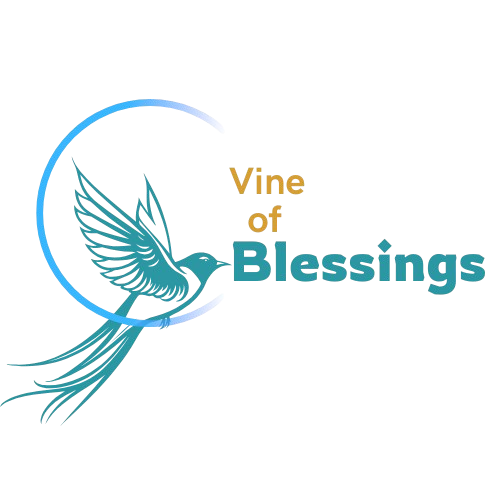
In today’s competitive job market, standing out from the crowd is more crucial than ever. While being a “team player” is a highly valued trait, using this overused phrase on your resume or during an interview might not capture the full essence of your collaborative abilities. 🤔
How can you effectively communicate your team-oriented skills without resorting to clichés? This blog post delves into the world of team player synonyms, offering fresh and impactful alternatives that will make your professional profile shine. From collaborative alternatives to leadership-focused terms, we’ll explore a variety of ways to express your team spirit and interpersonal prowess. 💼✨
Whether you’re updating your resume, preparing for an interview, or simply looking to expand your professional vocabulary, this guide will equip you with powerful synonyms that highlight your ability to work effectively in a team environment. Let’s dive into the various categories of team player alternatives and discover how they can elevate your professional communication.
Understanding the Importance of Team Player Synonyms
Enhancing resume impact
In today’s competitive job market, standing out from the crowd is crucial. Using alternative phrases for “team player” can significantly enhance your resume’s impact. Consider incorporating these powerful synonyms:
| Synonym | Impact |
|---|---|
| Collaborative catalyst | Demonstrates initiative in fostering teamwork |
| Synergy builder | Highlights ability to create harmony within teams |
| Cross-functional facilitator | Showcases versatility across departments |
By employing these dynamic alternatives, your resume will capture the attention of hiring managers and effectively communicate your collaborative skills.
Diversifying your professional vocabulary
Expanding your professional vocabulary is essential for career growth. Here are ways to diversify your language when describing teamwork abilities:
- Use industry-specific terminology
- Incorporate action verbs that highlight collaborative efforts
- Employ phrases that emphasize interpersonal skills
By broadening your lexicon, you demonstrate a nuanced understanding of teamwork and position yourself as a sophisticated communicator in professional settings.
Avoiding overused phrases in interviews
During interviews, it’s crucial to differentiate yourself from other candidates. Steering clear of overused phrases like “team player” can help you make a lasting impression. Instead, consider these alternatives:
- Describe specific instances of successful collaboration
- Highlight your role in fostering a positive team environment
- Discuss how you’ve contributed to team goals and outcomes
By providing concrete examples and using varied language, you’ll demonstrate your teamwork skills more effectively and memorably to potential employers.
Collaborative Alternatives to “Team Player”

Cooperative colleague
In the realm of professional collaboration, a cooperative colleague stands out as an invaluable asset to any team. This individual embodies the essence of teamwork, going beyond mere participation to actively foster a harmonious work environment. Here’s a breakdown of the qualities that define a cooperative colleague:
| Quality | Description |
|---|---|
| Supportive | Readily assists team members and contributes to collective goals |
| Reliable | Consistently delivers on commitments and meets deadlines |
| Communicative | Shares information effectively and listens attentively to others |
| Flexible | Adapts to changing circumstances and is open to new ideas |
Synergy builder
A synergy builder takes collaboration to the next level by actively seeking ways to enhance team performance. These professionals understand that the whole is greater than the sum of its parts and work tirelessly to:
- Identify complementary skills among team members
- Facilitate cross-functional cooperation
- Encourage knowledge sharing and mutual learning
- Promote a culture of collective problem-solving
Collaborative contributor
Collaborative contributors are the backbone of successful teams. They bring a unique blend of individual expertise and team-oriented mindset to every project. Key attributes include:
- Proactive engagement in group discussions
- Willingness to share resources and knowledge
- Ability to give and receive constructive feedback
- Commitment to achieving shared objectives
Group-oriented professional
A group-oriented professional recognizes the power of collective effort in achieving organizational goals. These individuals excel at:
- Aligning personal objectives with team priorities
- Fostering an inclusive work atmosphere
- Celebrating team successes and learning from setbacks together
- Mediating conflicts to maintain team cohesion
By incorporating these collaborative alternatives to “team player” in professional contexts, organizations can cultivate a more nuanced and effective approach to teamwork. These terms not only highlight specific aspects of collaboration but also demonstrate a deeper understanding of what it means to be a valuable member of a cohesive team.
Leadership-Focused Synonyms
Cross-functional facilitator
A cross-functional facilitator is a leadership-focused synonym for “team player” that emphasizes the ability to bridge gaps between different departments or specialties within an organization. This role is crucial in today’s interconnected business environment, where collaboration across diverse teams is essential for success.
Key attributes of a cross-functional facilitator include:
- Strong communication skills
- Broad understanding of various business functions
- Ability to translate complex ideas across disciplines
- Conflict resolution expertise
| Skill | Importance | Example |
|---|---|---|
| Communication | High | Explaining technical concepts to non-technical teams |
| Broad Knowledge | Medium | Understanding finance, marketing, and operations |
| Translation | High | Conveying design ideas to engineering teams |
| Conflict Resolution | Medium | Mediating disagreements between departments |
Cohesion catalyst
A cohesion catalyst is another leadership-focused alternative to “team player,” highlighting an individual’s ability to bring people together and foster a sense of unity within a team or organization. This role is particularly valuable in diverse or geographically dispersed teams.
Characteristics of a cohesion catalyst:
- Empathy and emotional intelligence
- Ability to identify common goals
- Skill in building relationships
- Talent for creating inclusive environments
Harmony promoter
The term “harmony promoter” emphasizes the leadership quality of maintaining a positive and productive work environment. This individual excels at:
- Resolving conflicts diplomatically
- Encouraging open communication
- Balancing diverse perspectives
- Fostering a culture of mutual respect
These leadership-focused synonyms for “team player” highlight the proactive role individuals can take in enhancing team dynamics and organizational success. By using these terms, you can more precisely describe the leadership qualities that contribute to effective teamwork and collaboration.
Result-Driven Team Player Alternatives
Collective achievement specialist
In today’s competitive business landscape, organizations are increasingly seeking professionals who can drive results through collaborative efforts. A collective achievement specialist excels in this role by focusing on:
- Identifying team goals
- Aligning individual strengths with project objectives
- Fostering a culture of shared responsibility
These professionals understand that success is a team effort and work tirelessly to ensure everyone contributes to the overall achievement.
Shared success advocate
A shared success advocate goes beyond individual accomplishments, emphasizing the importance of collective wins. They:
- Promote a win-win mindset within the team
- Celebrate team victories and milestones
- Encourage knowledge sharing and skill development
By championing shared success, these individuals create a positive and motivating work environment that drives performance.
Group performance enhancer
Group performance enhancers are catalysts for team productivity. They utilize various strategies to boost overall team output:
| Strategy | Description |
|---|---|
| Performance tracking | Implement metrics to measure team progress |
| Resource optimization | Allocate resources efficiently to maximize results |
| Continuous improvement | Identify and implement process enhancements |
These professionals consistently seek ways to elevate the team’s performance, resulting in improved outcomes and increased efficiency.
Teamwork efficiency expert
Teamwork efficiency experts focus on streamlining collaborative processes to achieve optimal results. They:
- Identify and eliminate bottlenecks in team workflows
- Implement effective communication channels
- Promote the use of productivity tools and technologies
By enhancing team efficiency, these individuals ensure that collective efforts translate into tangible results, making them invaluable assets to any organization striving for success through teamwork.
Communication-Centric Synonyms
Open dialogue promoter
Fostering open dialogue within a team is crucial for effective collaboration. An open dialogue promoter actively encourages transparent communication, creating an environment where all team members feel comfortable sharing their ideas and concerns. This role involves:
- Initiating and facilitating team discussions
- Encouraging diverse perspectives
- Mediating conflicts constructively
| Benefits of Open Dialogue | Examples of Promotion |
|---|---|
| Enhanced creativity | Regular brainstorming sessions |
| Improved problem-solving | Anonymous feedback channels |
| Stronger team cohesion | Open-door policy implementation |
Interpersonal bridge builder
An interpersonal bridge builder excels at connecting team members across different departments, backgrounds, and expertise levels. This skill is invaluable in:
- Breaking down silos within organizations
- Fostering cross-functional collaboration
- Enhancing overall team synergy
By actively seeking to understand various perspectives and finding common ground, bridge builders create a more unified and efficient work environment.
Inclusive communicator
An inclusive communicator ensures that all team members, regardless of their position or background, are heard and valued. This approach involves:
- Using clear and accessible language
- Adapting communication styles to suit different team members
- Actively seeking input from quieter or marginalized voices
Inclusive communication fosters a sense of belonging and respect within the team, leading to increased engagement and productivity. By emphasizing these communication-centric synonyms, professionals can demonstrate their ability to enhance team dynamics through effective and inclusive dialogue.
Adaptability-Focused Alternatives
Flexible team member
In today’s dynamic work environment, being a flexible team member is crucial. This trait goes beyond simply being a team player; it demonstrates an individual’s ability to adjust their approach based on the team’s needs and project requirements.
- Characteristics of a flexible team member:
- Open to change
- Willing to take on various roles
- Adaptable to new processes
- Responsive to shifting priorities
Adaptable collaborator
An adaptable collaborator brings a unique set of skills to the team, enhancing overall productivity and innovation. This term emphasizes the ability to work effectively with diverse groups and in varying situations.
| Skill | Benefit to the Team |
|---|---|
| Quick learning | Reduces onboarding time for new projects |
| Emotional intelligence | Improves team dynamics and communication |
| Problem-solving | Helps overcome unexpected challenges |
| Versatility | Enables seamless role transitions |
Versatile group contributor
A versatile group contributor is someone who can wear multiple hats within a team setting. This individual possesses a broad skill set and is willing to step in wherever needed to ensure project success.
Agile team asset
In the context of team dynamics, an agile team asset refers to a member who can quickly adapt to changing project requirements and methodologies. This term is particularly relevant in industries that employ agile project management techniques.
- Key qualities of an agile team asset:
- Embraces iterative processes
- Thrives in fast-paced environments
- Comfortable with ambiguity
- Continuously seeks improvement
These adaptability-focused alternatives to “team player” highlight the importance of flexibility and versatility in modern workplaces. By using these terms, you can more accurately describe team members who excel at adapting to new situations and contributing in various capacities.

Effective collaboration in the workplace extends far beyond the commonly used phrase “team player.” By exploring a diverse range of synonyms and alternatives, professionals can better articulate their collaborative skills and leadership qualities. From emphasizing communication-centric attributes to highlighting adaptability and result-driven capabilities, these alternative expressions provide a more nuanced and impactful way to showcase one’s ability to work well with others.
Embracing these varied descriptions not only enhances resumes and professional profiles but also fosters a more inclusive and dynamic work environment. As organizations continue to value diverse skill sets and collaborative approaches, individuals who can effectively communicate their team-oriented strengths will stand out. By incorporating these alternative phrases into professional vocabularies, both employers and employees can cultivate a more robust and effective team culture, ultimately driving success and innovation in the workplace.








